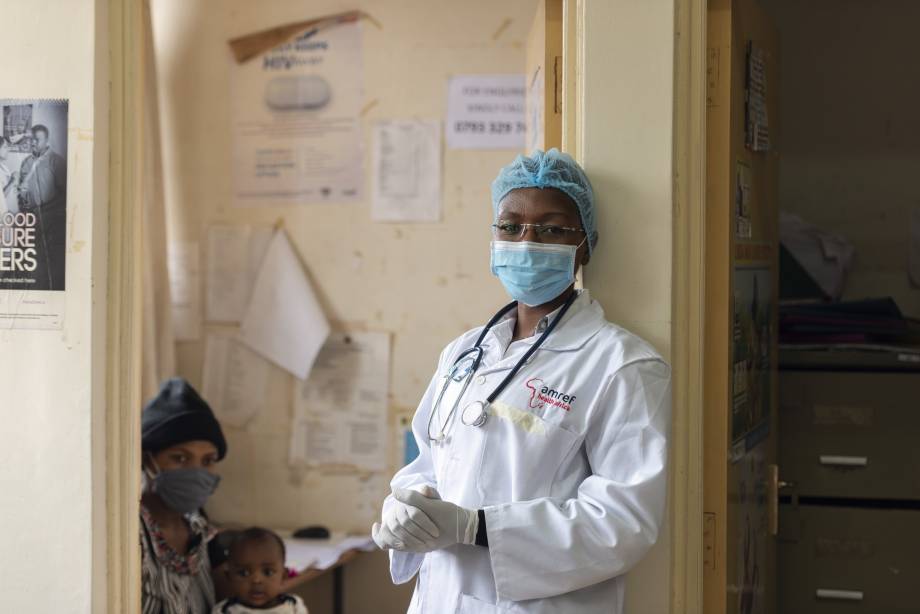 Responding to COVID-19 in Ethiopia, Kenya, Malawi and Senegal
Responding to COVID-19 in Ethiopia, Kenya, Malawi and Senegal
Project timeline: July 2020 – June 2021
Funders: Government of Canada through Global Affairs Canada as an extension of the Canada-Africa Initiative to Address Maternal, Newborn and Child Mortality (CAIA-MNCM) project.
Situation
Communities in sub-Saharan Africa are facing the COVID-19 pandemic within a challenging context: fragile, under-resourced health systems that can quickly become overburdened; a shortage of trained health care workers; and a lack of reliable access to clean, running water.
The head of the Africa Centres for Disease Control and Prevention (Africa CDC) has warned the COVID-19 pandemic is reaching Africa “full speed”. Support for vulnerable communities across the continent is needed now more than ever.
Action
To help slow the spread of COVID-19, Amref Health Africa in Canada is assisting vulnerable communities in Ethiopia, Kenya, Malawi and Senegal with $3.6 million in additional funding from the Government of Canada through Global Affairs Canada.
The response will be carried out in many of the same communities as the four-year Canada-Africa Initiative to Address Maternal, Newborn and Children Mortality project – communities that have come to know and trust Amref Health Africa. This response will specifically:
-
provide personal protective equipment (PPE), such as medical-grade masks, gloves and gowns, to health workers and health facilities;
-
rapidly deploy water and sanitation supplies like handwashing stations that are easy to install and maintain;
-
train community health workers and health care professionals on preventing and treating COVID-19 using mobile and eLearning platforms, including the Leap mHealth platform. Leap uses mobile phone SMS and audio technology to connect users with the latest public health information on COVID-19, educational resources and the opportunity to share what they are hearing and learning with peers in other locations;
-
recruit community leaders, local influencers, and educators to raise awareness on ways to stop the spread of COVID-19 and to use the Leap mHealth platform to report local cases of the virus and harmful rumours so community health workers and health care professionals can respond; and,
-
educate communities about COVID-19 by producing content for local radio stations and print and social media, and posters, fact sheets and banners for display in high-visible areas, with a focus on communities that are remote, vulnerable or marginalized.
Results
The COVID-19 project reached 1,491,748 people directly.
Through this initiative we were able to provide a variety of COVID-19 supplies. Some of these supplies include:
- 1,000 handwashing stations/facilities
- 490 units of Infrared thermometer
- 14,148 units/bottles of bar soap/liquid soap
- 300 tippy taps (containers of water on a pole that tip when a string is pulled)
- 38,900 disposable masks
- 12,200 reusable face masks
- 3,377 bottles of hydroalcoholic solution
- And more
We were also able to train thousands of health workers:
Total Facility-Based Health Workers: 1,710
- Ethiopia: 108
- Kenya: 1,502
- Malawi: 61
- Senegal: 39
Total Community Health Workers: 25,413
- Ethiopia: 1,000
- Kenya: 16,016
- Malawi: 7,247
- Senegal: 1,150
